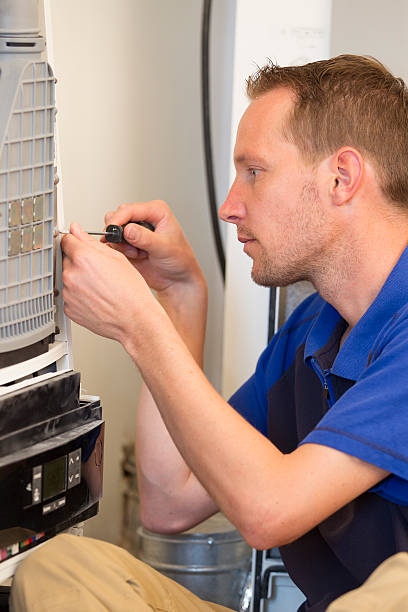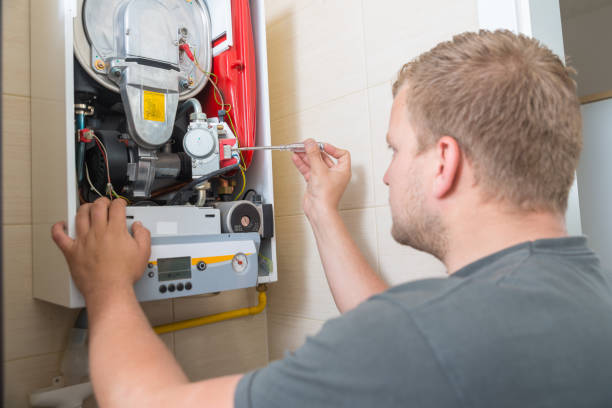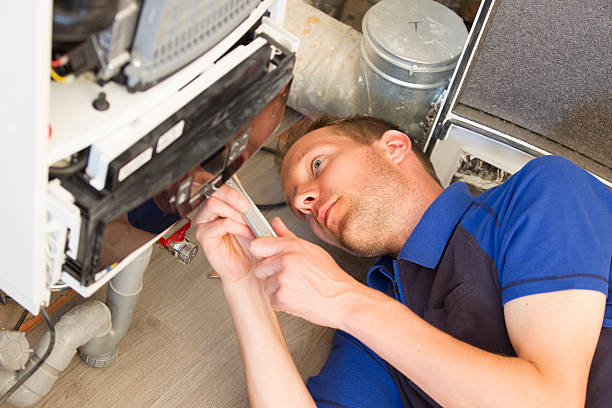A combi boiler is a popular choice for many homeowners due to its compact size and ability to provide both heat and hot water. However, like any mechanical system, it’s prone to wear and tear, and certain components are more likely to fail than others. In this article, we’ll take a closer look at the most common components in both a combi and a heat only boiler that are prone to failing, their associated symptoms, and which components tend to be the most expensive to replace.
Which boiler parts are most likely to fail?
One of the most critical components in a combi boiler is the heat exchanger. It is responsible for the transfer of heat from the combustion process to the water. If it fails, it can lead to a lack of heat and can be costly to replace. Another component that can be expensive to replace if it fails is the electronic control board, which controls the operation of the boiler.

A failure of this component can prevent the boiler from functioning correctly. Additionally, the diverter valve which directs hot water to either the heating or hot water system and the fan which is responsible for blowing air over the heat exchanger can also be costly to replace if they fail.
Combi boiler components most prone to failing
In a combi boiler, the components that are most prone to failing include:
The diverter valve
which directs hot water to either the heating or hot water system and can fail, preventing the boiler from providing either heat or hot water.
The expansion vessel
which is used to absorb the expansion of water as it heats and can fail, causing the pressure in the system to become too high.
The pressure relief valve
which is used to release pressure if the system becomes too pressurized and can fail, causing the system to become dangerous.
The flow sensor
which detects the flow of water and can fail, preventing the boiler from firing up.
The electronic control board
which controls the operation of the boiler and can fail, preventing the boiler from functioning correctly.
The heat exchanger
which is responsible for the transfer of heat from the combustion process to the water and can fail, leading to a lack of heat.
Fan
which is responsible for blowing air over the heat exchanger and can fail, leading to poor combustion and a lack of heat.
Regular maintenance and inspections can help prevent or delay the failure of these components. So make sure to get a gas safe engineer do a full boiler service every year.

Which combi boiler components are the most expensive?
Out of the components listed for a combi boiler, the most expensive ones tend to be:
- The heat exchanger.
- The electronic control board.
- The diverter valve.
- The fan.
- The pressure relief valve.
The replacement costs of these components can vary depending on the brand, model and age of the combi boiler, as well as the availability and cost of replacement parts. Additionally, some of these components may be covered by warranty, so it’s always best to check the warranty before replacing any component.
Heat only and system boiler components failing
The components in a hot water and heating boiler that are most prone to failing include the following:
- The thermocouple, which senses the temperature of the pilot light and can fail, preventing the pilot light from staying lit.
- The gas valve, which controls the flow of gas to the burner and can fail, preventing the boiler from heating up.
- The circulator pump, which circulates hot water through the system and can fail, preventing hot water from reaching the desired location.
- The expansion tank, which is used to absorb the expansion of water as it heats and can fail, causing the pressure in the system to become too high.
- The pressure relief valve, which is used to release pressure if the system becomes too pressurized and can fail, causing the system to become dangerous.
- The main burner, which is used to heat the water and can fail, preventing the boiler from heating up.
- The electronic control board, which controls the operation of the boiler and can fail, preventing the boiler from functioning correctly.

What are the symptoms of boiler components failing?
- The thermocouple: If the thermocouple fails, it will prevent the pilot light from staying lit, resulting in the boiler not firing up. This is a common symptom of a thermocouple failure.
- The gas valve: If the gas valve fails, it will prevent the boiler from heating up. This could be caused by a lack of heat, no hot water or no heating at all.
- The circulator pump: If the circulator pump fails, it will prevent hot water from reaching the desired location. This could be identified by lack of hot water in certain areas or a lack of heat in the system.
- The expansion tank: If the expansion tank fails, it could cause the pressure in the system to become too high. This could be identified by excessive noise coming from the boiler or leaks in the system.
- The pressure relief valve: If the pressure relief valve fails, it could cause the system to become dangerous by not releasing pressure when needed. This could be identified by excessive noise coming from the boiler or leaks in the system.
- The main burner: If the main burner fails, it will prevent the boiler from heating up. This could be caused by a lack of heat, no hot water or no heating at all.
- The electronic control board: If the electronic control board fails, it will prevent the boiler from functioning correctly. This could be identified by the boiler not firing up, not responding to thermostat commands, or displaying error codes on the control panel.
It’s important to note that if any of these symptoms occur, it is recommended to contact a professional to diagnose and repair the problem.
*The information in this article should be used for general guidance only. Full details are on the link in the footer to our disclaimer page. Always discuss your requirements with a competent and suitably qualified professional before undertaking any work.
